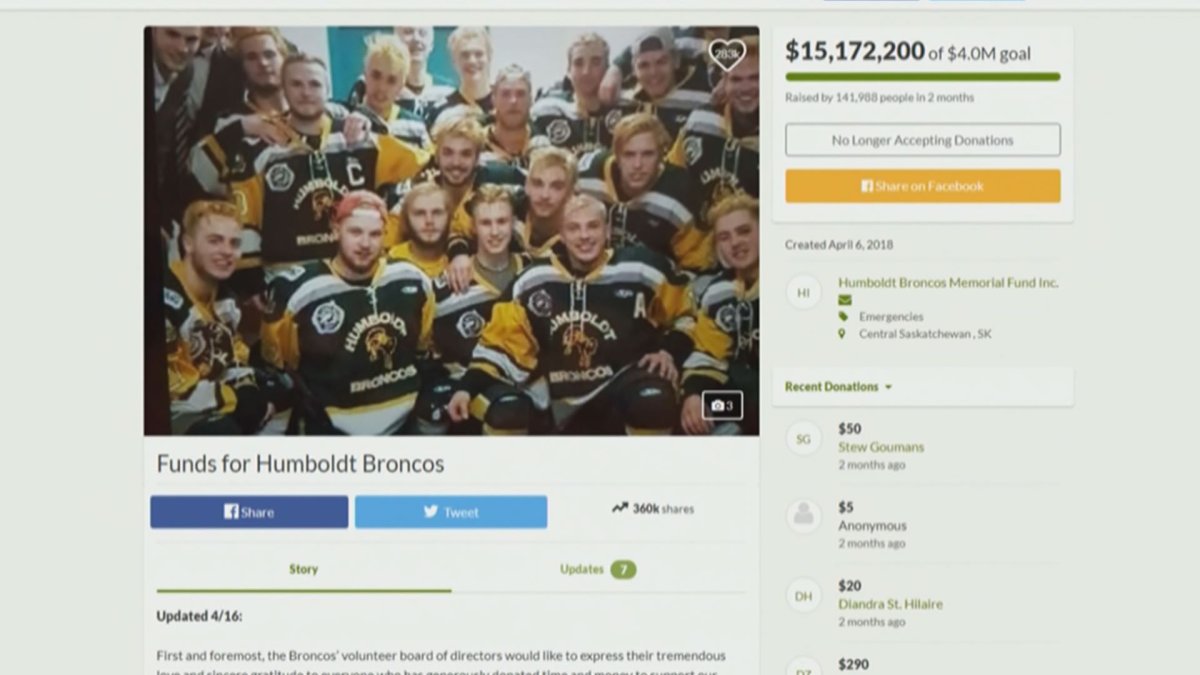A committee working on how to distribute $15.2 million raised in a GoFundMe campaign after the Humboldt Broncos bus crash said the court should respect the families’ wishes on how the money should be divided.

The committee is recommending a total payout of $525,000 for each of the 16 families who lost a loved one in the crash.
It is also recommending a total of $475,000 for each of the 13 surviving players.
Court documents said the suggestions are based on a formula that came out of discussions with the families.
In August, a judge approved an interim payment of $50,000 each to the survivors and families of the people who died in April.
The recommendations still need to be approved at a court appearance set for Nov. 28.
WATCH BELOW: Video coverage of the Humboldt Broncos GoFundMe campaign
This is the first test of Saskatchewan’s efforts to regulate crowdfunding campaigns.
The province has legislation known as the Informal Public Appeals Act, which outlines court-supervised payouts.
The legislation was recommended in 2012 by a national body called the Uniform Law Conference, which proposes changes when gaps are identified in existing laws.
Under the law, a court hearing can be requested by a trustee, a donor, a person who benefits from a fund, the attorney general or anyone the court considers has a sufficient interest in a fund.
In the Broncos case, a hearing was requested by the Humboldt Broncos Memorial Fund Inc.
The Humboldt Broncos Memorial Fund committee is made up of retired Saskatchewan justice Dennis Ball; Mark Chipman, chairman of the company that owns the NHL’s Winnipeg Jets; Olympic gold medallist Hayley Wickenheiser; Dr. Peter Spafford, who’s in charge of head and neck surgery at the University of Saskatchewan’s College of Medicine; and Kevin Cameron, executive director of the Canadian Centre for Threat Assessment and Trauma Response.







Comments